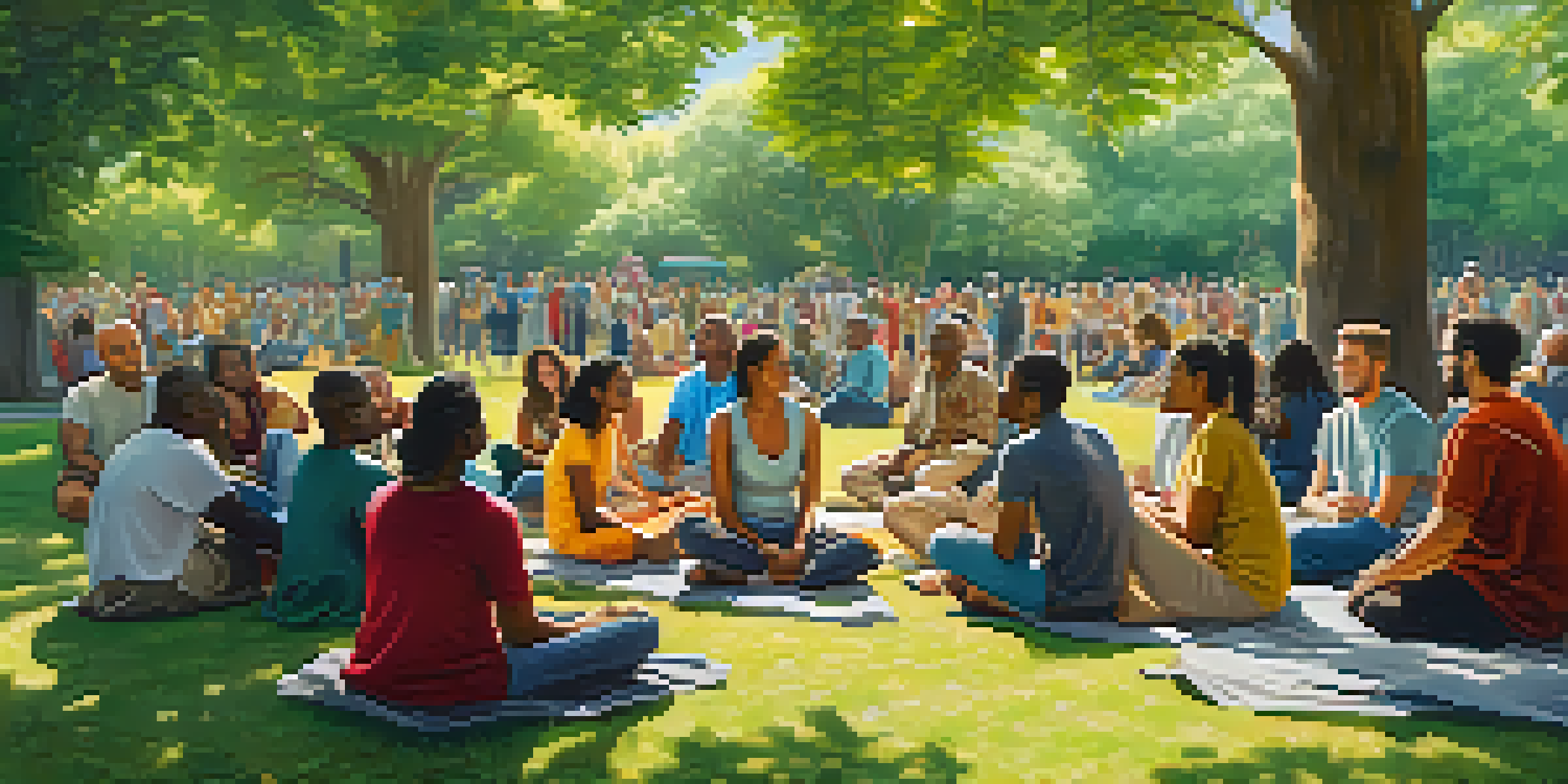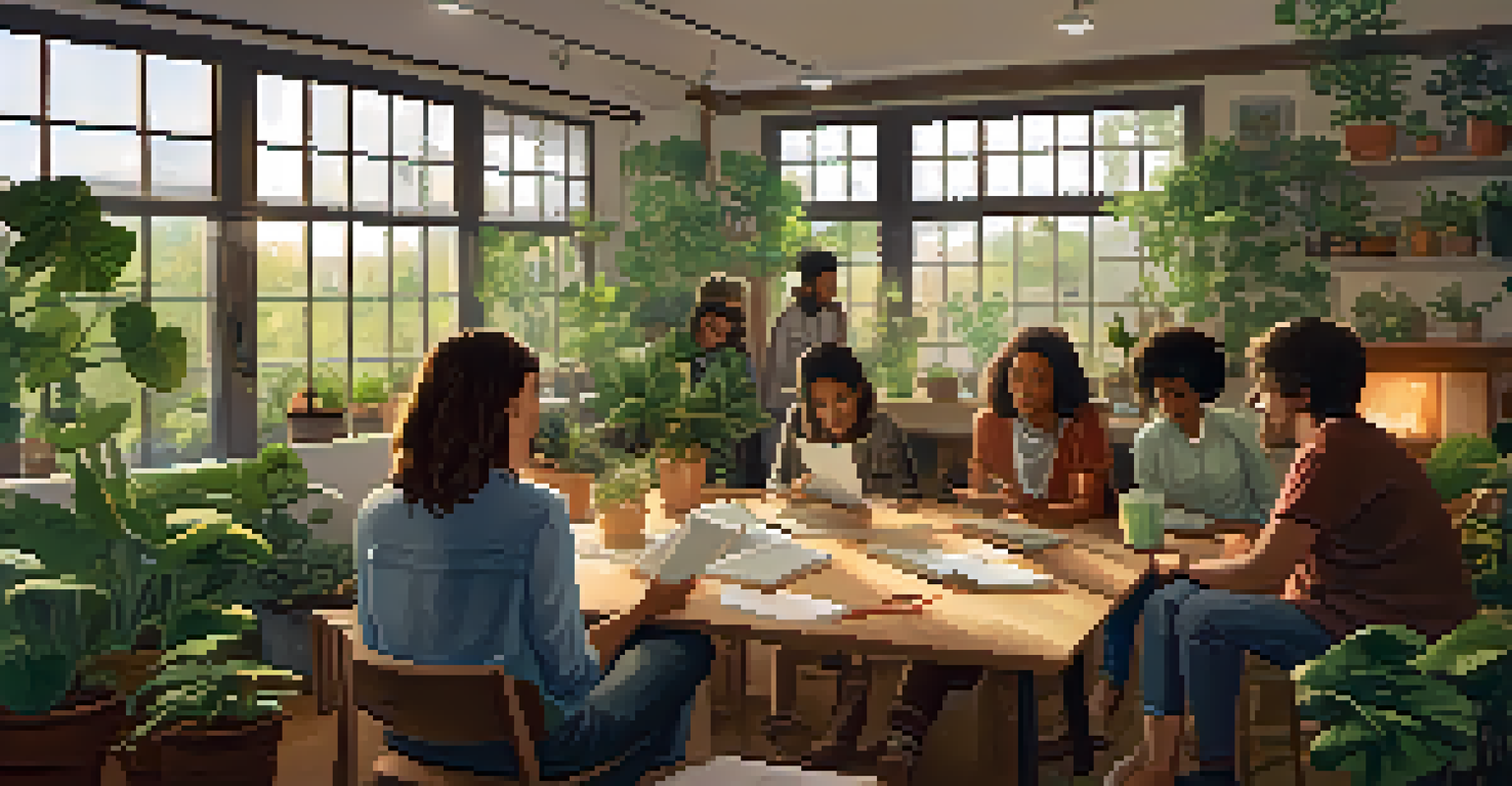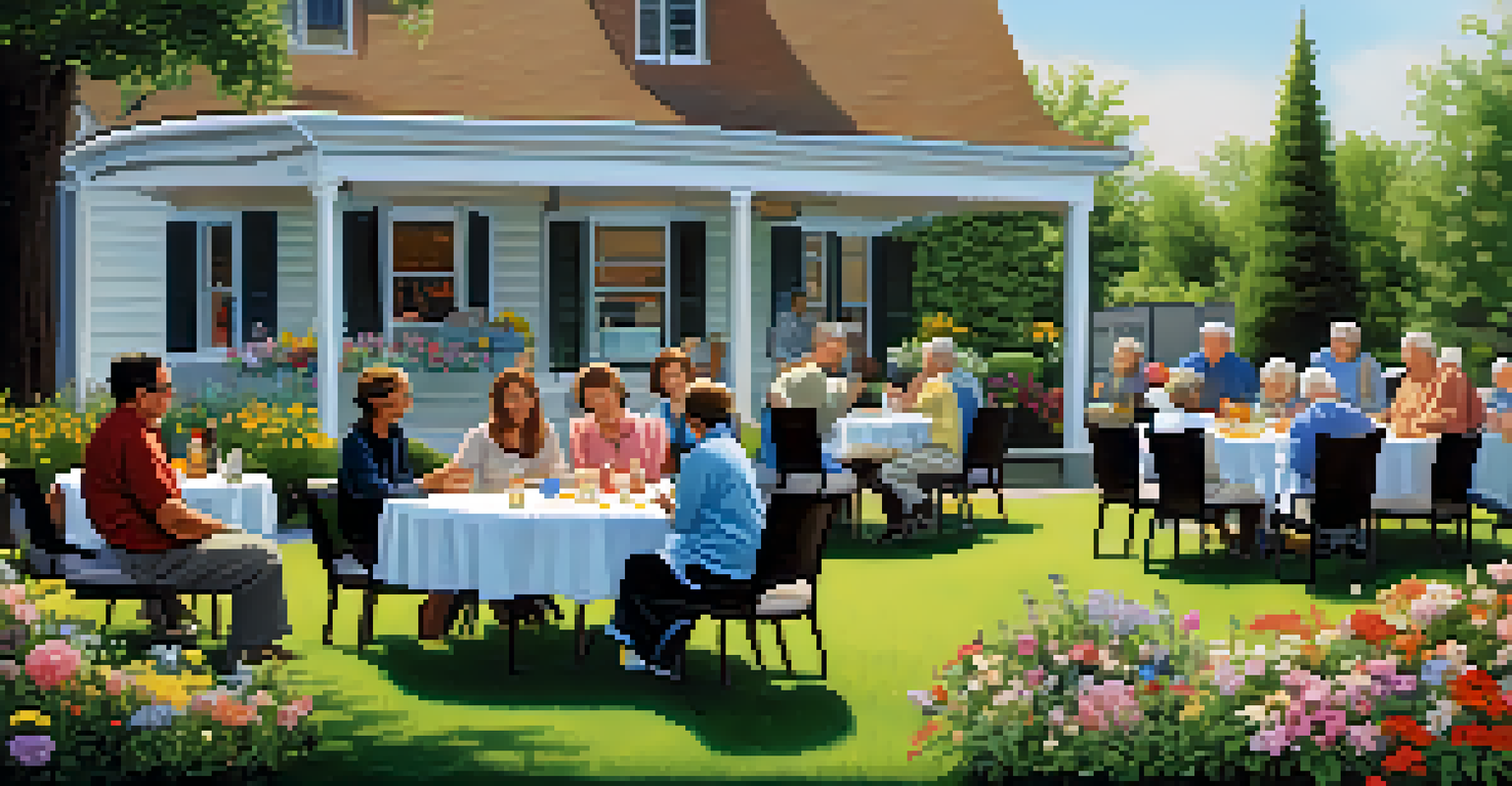Empathy and Entheogens: Strengthening Community Ties

Understanding Empathy and Its Importance in Communities
Empathy is the ability to understand and share the feelings of others, and it plays a crucial role in building strong communities. When individuals practice empathy, they create connections that foster trust and cooperation. This understanding leads to a supportive environment where everyone feels valued and heard.
Empathy is about finding echoes of another person in yourself.
In essence, empathy allows us to step into someone else’s shoes, providing insights into their experiences and emotions. Imagine a neighborhood where people actively listen to each other’s struggles and joys; this creates a sense of belonging and unity. The more we nurture empathy, the healthier our community ties become.
Ultimately, empathy isn’t just about feeling for others; it’s about translating those feelings into action. By actively supporting one another, we can tackle communal challenges together, making our neighborhoods more resilient and vibrant.
The Role of Entheogens in Enhancing Empathy
Entheogens, or psychoactive substances often used in spiritual contexts, have been shown to enhance feelings of empathy and interconnectedness. Substances like psilocybin or ayahuasca can alter perceptions, allowing individuals to experience a deeper connection with themselves and others. This can lead to profound insights about shared humanity.

When people engage with these substances in a safe and supportive setting, they often report a heightened sense of compassion for others. For example, participants in guided sessions may express feelings of love and understanding that transcend their usual boundaries, fostering a sense of community. This shared experience can bond individuals together in a unique way.
Empathy Builds Strong Communities
Practicing empathy fosters trust and connection, leading to supportive environments where everyone feels valued.
It’s essential to approach the use of entheogens responsibly, ensuring that they are part of a structured environment. With proper guidance, the experience can lead to lasting changes in how individuals interact with their communities, promoting empathy and social cohesion.
Creating Safe Spaces for Shared Experiences
To harness the power of empathy and entheogens, it’s vital to create safe spaces where individuals can come together. These environments should encourage open dialogue, mutual respect, and understanding. When people feel safe, they are more likely to share their feelings and experiences.
The best way to find yourself is to lose yourself in the service of others.
Consider organizing community retreats or workshops focused on empathy-building activities, perhaps integrating guided experiences with entheogens. These gatherings can serve as platforms for participants to connect deeply and authentically. The shared experience can help dissolve barriers and foster a sense of belonging.
Moreover, establishing these spaces fosters a culture of support and acceptance. When individuals know they are part of a community that values their well-being, it encourages them to contribute positively, further strengthening the community ties.
Empathy as a Tool for Conflict Resolution
Empathy can be a transformative tool in resolving conflicts within communities. When disagreements arise, understanding the perspectives of others can pave the way for constructive dialogue. Instead of escalating tensions, empathy can lead to solutions that honor everyone’s feelings and needs.
By encouraging open conversations where individuals share their viewpoints, communities can find common ground. Imagine a neighborhood council meeting where, instead of arguing, people actively listen and empathize with each other’s concerns. This shift in approach can transform conflicts into opportunities for growth and collaboration.
Entheogens Enhance Empathy
Psychoactive substances like psilocybin can promote deeper emotional connections and compassion among individuals.
Ultimately, fostering empathy during conflicts not only resolves issues but also strengthens relationships. Communities that prioritize understanding are more likely to emerge resilient, with a shared commitment to moving forward together.
The Science Behind Empathy and Entheogens
Research indicates that entheogens can impact brain chemistry, enhancing emotional responses and promoting empathy. For instance, studies have shown that substances like MDMA can increase feelings of connection and trust between individuals. This scientific backing reinforces the idea that these experiences can lead to meaningful community engagement.
When individuals consume entheogens, they often experience changes in brain activity that promote social bonding. This is particularly relevant in group settings, where shared experiences can amplify feelings of empathy. The science behind these substances provides a compelling argument for their potential positive impact on community relationships.
However, it’s essential to approach this science with caution. While the potential benefits are promising, further research is needed to understand the long-term effects and the best practices for safe use. Balancing scientific insights with responsible practices can help communities explore these avenues effectively.
Integrating Empathy Practices into Daily Life
While entheogens can enhance empathy in specific contexts, we can also cultivate this quality in our everyday lives. Simple practices such as active listening, expressing gratitude, and volunteering can significantly deepen our connections with others. These actions not only promote empathy but also strengthen community ties.
For example, consider joining or starting a community project that focuses on a shared interest, such as gardening or art. Engaging in these activities allows individuals to bond over common goals and experiences, fostering a sense of unity. As people collaborate, they naturally develop empathy for one another’s perspectives and challenges.
Empathy Aids Conflict Resolution
Understanding differing perspectives through empathy can transform conflicts into opportunities for growth and collaboration.
Moreover, integrating empathy into daily interactions, like checking in with neighbors or offering support, can create a ripple effect. Each small act of kindness contributes to a more compassionate community, reinforcing the idea that empathy is a continuous practice rather than a one-time event.
Looking Ahead: The Future of Empathy and Communities
As we look toward the future, the integration of empathy and entheogens could play a crucial role in community development. With increasing societal challenges, fostering empathy may become more important than ever. Communities that prioritize understanding and connection will likely be more resilient in the face of adversity.
Moreover, as public perception of entheogens continues to evolve, we may see more structured, safe environments where these substances can be explored for their potential benefits. This could lead to innovative approaches to community engagement that prioritize empathy and shared experiences.

Ultimately, the journey toward stronger community ties through empathy and entheogens is just beginning. By embracing these concepts, we can pave the way for a more compassionate, connected, and resilient society.